This website uses cookies so that we can provide you with the best user experience possible. Cookie information is stored in your browser and performs functions such as recognising you when you return to our website and helping our team to understand which sections of the website you find most interesting and useful.
Our Curriculum
Rationale.
Our curriculum should always be the central driver for improvement in terms of pupils’ experiences and outcomes. We continually reflect on our best practice to ensure what we teach is enriching, engaging and exciting. Our curriculum needs to reflect our federation vision and it should prepare the children to be life-long learners and ready to be active citizens in life.
Our curriculum intention.
This is based around our vision: ‘Enabling children to flourish through the field of life’, where we understand and recognise that every child needs nurture and care to enable them to grow into well-rounded individuals.
Children will flourish as learners and develop faith in learning by:
- Experiencing spirituality woven into the curriculum – click here
- Experiencing a joined up curriculum that draws on the systematic development of skills and knowledge over time
- Use Knowledge Organisers to be well prepared for their learning by previewing the facts they will discover
Children will flourish as learners and achieve their full potential by:
- Having a broad range of learning experiences that are class-based, visitor-led and visit-orientated
- Having a say in what they learn and develop independent learning that is transferable across the curriculum
- Taking social action and become courageous advocates for change.
Children will flourish and reach their aspirations by:
- Understanding the high expectations of themselves academically and socially
- Using the principles of Shirley Clarke to respond to feedback ‘in the moment’ wherever possible.
Our curriculum implementation
For us to ‘enable our children to flourish through the field of life’, we have organised a rich curriculum that makes children’s learning irresistible. A curriculum that is connected through topic and block teaching where appropriate, whilst flexible to include local resources such as visits and visitors.
We have key documents that support this:
Planning:
- Curriculum subject maps – click here
- Curriculum coverage documents – click here
- Knowledge Organisers – click here
- Knowledge and skills progression documents – click here
- Planning for assessment documents – click here
- Core wider curriculum vocabulary – click here
Monitoring and assessment:
- Action Plans for all subjects click here
- Subject leader monitoring – click here
- Monitoring timetable – click here
Policy support:
- Teaching for Learning Policy – click here
- Marking and feedback policy – click here
- Assessment Policy – click here
Implementation summary
The curriculum (see curriculum map) is planned using topics as far as possible. We continue to believe that learning in this way builds a richer schema than teaching all subjects separately.
As much as is fruitful, we plan in (roughly) weekly blocks for subjects. This is to assist with building a richer schema and ensures that each subject is properly valued. To encourage remembering of learning we use displays, ‘floorbooks’ and summative and formative quizzes within and beyond each unit. Block plans can be seen in the front of floorbooks. Monitoring has a significant focus on these techniques for remembering and different methods of assessment (see operational overview and monitoring form).
Exceptions to block planning are in Key Stage 2 science which is taught weekly to ensure sufficient time allocation, and where teachers are released from class for PPA time. This is taught by members of staff who are preferably subject specialists.
Coverage and progression has been secured through the Curriculum coverage documents. These follow the format of a ‘Big Question’ to aid assessment and essential elements of the national curriculum to be taught. These were produced by the Subject Leaders and the Curriculum Champion. We selected key elements from the curriculum map and then ensured NC coverage and progression through the knowledge and skills progression documents. Many subjects are linked to commercial schemes of work which can be used as a skeleton for teaching.
Teachers work in phase teams termly to review past topics and create a new updated knowledge organiser. This shows the topic web, the Big Question, the key learning objectives for each subject, the key vocabulary for each subject and suggests home support ideas and end of unit outcome ideas. Innovations are then shared and each teacher starts to think strategically for the new topic.
Teachers are expected to use the planning for assessment documents. These are medium-term plans for foundation subjects (and Science). They will embed practices of coverage, planning across a unit, summative and formative assessment, and vocabulary planning for assessment throughout the unit. –

